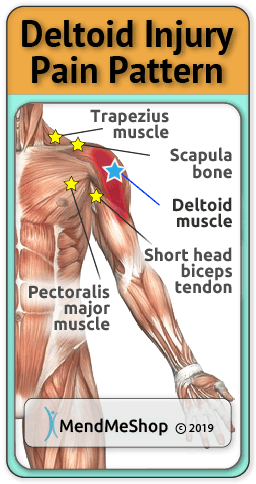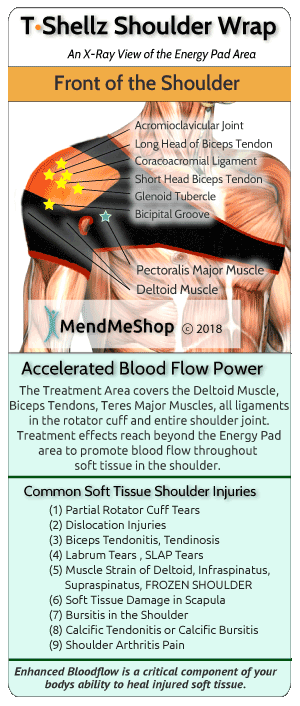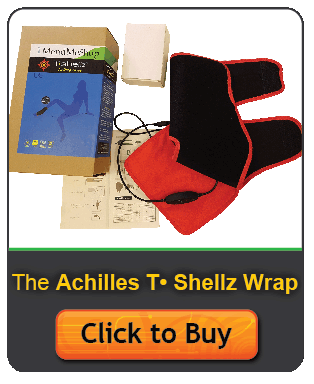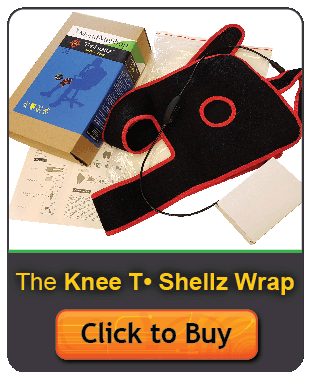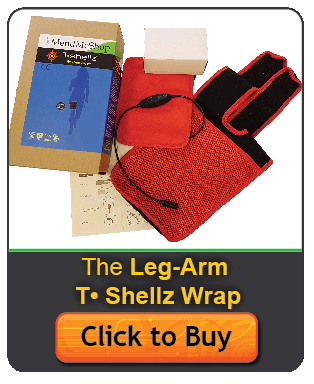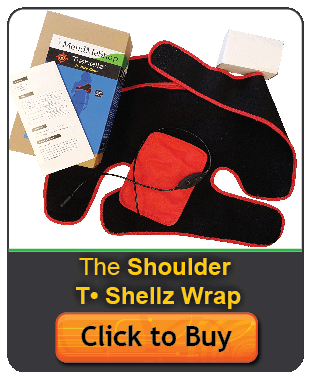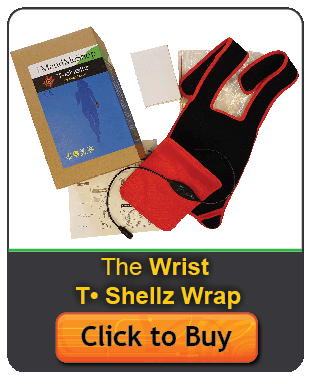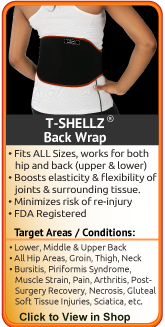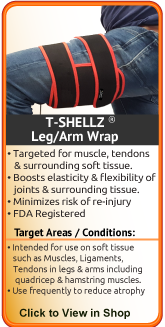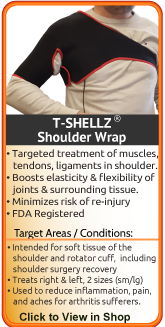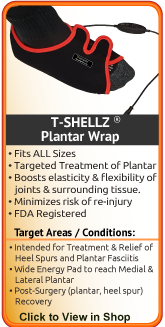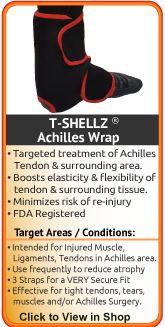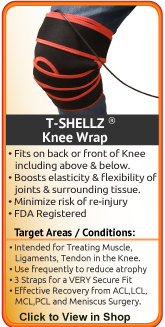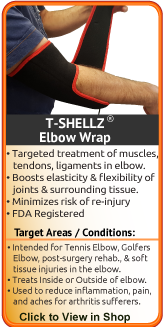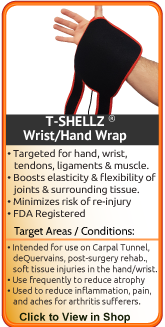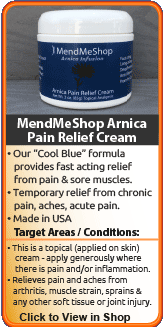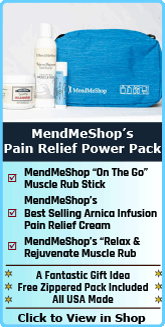|
|
Any strain or pull in muscle tissue means the muscle fibers have experienced some damage. Severity of the damage will usually correlate with degree and duration of pain. A strained deltoid in the affected shoulder may have signs and symptoms as:
More severe strains will result in greater loss of range of motion, weakness and muscle loss (atrophy). How Long for a Deltoid Strain to Heal?This is a popular question, but the short answer is that it depends on the grade of strain as well as the age of the person, the type of treatment they receive and their overall health. When considering all factors, a the healing time for a deltoid strain can range between a couple of days and four to five months. See directly below for a detailed analysis on deltoid strain grades and the accompanying general healing time estimates. Deltoid Muscle Strain Grading There are three grades to a deltoid muscle strain.
Causes of Deltoid StrainSports, ActivityMost deltoid muscle injuries come about due to activities that have over-stressed the deltoid muscle. Common activities to cause deltoid strain are skiing, weightlifting, swimming, carrying children, and working with heavy tools (ie. nailguns, drills, etc). Highly repetitive activity is especially problematic and can even include activities such as typing and gardening. Acute InjuryIt is no secret that a sharp blow to the shoulder can easily result in a deltoid strain. A deltoid strain is a common issue for those that have suffered a shoulder dislocation or even car accident. Axillary Nerve IssuesThe axillary nerve is a tight bundle of nerves near the neck. These nerves are used to stimulate the deltoid muscle into action when we use our shoulder and arm. When the axillary nerve becomes damaged the deltoid muscle can no longer function correctly. You may have numbness over part of the outer shoulder and shoulder weakness (especially when lifting up your arm up and away from the body). Causes are direct injury, long-term pressure on the nerve (from cast or splints), shoulder injury and pressure from surround tissue, body-wide (systemic) disorders that cause nerve inflammation, deep infection, fracture, and improper use of crutches or shoulder dislocation. Trigger Points - Referred PainTrigger points can become problematic and result in pain that seems to be in the deltoid region yet the source of the pain might be from elsewhere. There are trigger points in the deltoid as well, however, which can be activated by repetitive activities outlined above or by incidents such as using your shoulder to break a fall. Symptoms of a Strained DeltoidThe symptoms of a deltoid muscle strain is dependent on the severity of the injury. With a mild injury you may only notice tightness in deltoid, however, a more serious injury can cause weakness, severe pain in the upper arm/shoulder, and difficulties extending the arm upward. Weakness Weakness or complete loss of function of the deltoid muscle can also be experienced as a result of a pulled muscle. This along with your other symptoms may make it difficult for you to raise your arm, throw a ball or attach a seatbelt in your car. Swelling and BruisingSwelling in the deltoid muscle is a result of soft tissues becoming inflamed; this normally occurs with a more serious strain. Warmth and redness may accompany swelling in severe cases. You may also feel a gap, dent or bulge in your muscle that is not normally present. Occasionally, bruising (contusion) and discoloration over the deltoid muscle may appear immediately or after a few days with severe strains. Decreased FlexibilityYou may experience stiffness or decreased range of motion (ROM) as a result of a pulled deltoid. The tightness at the outer arm extending from your shoulder will make it difficult to raise your arm upward. Your sleep may be affected if the stiffness causes discomfort. You may be experiencing muscle spasms. An injury can make the muscle and/or nerves behave abnormally and improper contraction signals may be sent to the brain causing the deltoid muscle to spasm. With an avulsion, or rupture, you will probably feel a gap in the muscle and an inability to raise the arm outward. Deltoid PainA sharp pain or twinges may be felt along the front, side or back of the shoulder. You may experience tenderness and/or muscle spasms in the muscle during active and resistive movements. Pain often increases when pressure is applied to the injured muscle. Due to the pain, you will probably find that you are unable to move your arm very much - if at all. An avulsion, or complete deltoid tear causes extreme pain, even during rest. The torn tissue may bunch up causing even more pain when outward arm movement is attempted. If you have a chronic deltoid injury, you may feel more of a dull ache in the shoulder area that lasts for long periods of time. Popping NoiseA popping or snapping sensation at the shoulder can often be heard and felt when deltoid muscles are tearing. This can happens in weightlifting, sports or any activity where there is significant stress on the deltoid muscle. Deltoid Muscle Strain DiagnosisDiagnosing your deltoid injury will help determine the course of action necessary for proper treatment. If you have suffered from a painful strain and you have lost power in your upper arm or shoulder, it is very important to see a physician, as the shoulder region is often a location where pain from heart, lung and bowel issues will show up. Furthermore, referred pain from trigger points may also mean the source of pain is elsewhere, so make sure you find out what is really causing you pain. Although complete tears are not common, they can go unnoticed as the symptoms can be similar to a bad strain. To help your doctor achieve a proper diagnosis, he/she will begin with a medical history about you, your current condition and symptoms. He/she will inquire about the intensity of your present pain, if you heard a popping noise when you first experienced your injury, the duration and type of symptoms and the limitations you are experiencing. Details about what instigated your problem, when it started, and whether or not you have ever had treatments for this or a similar condition in the past, will be very helpful in assessing your injury. A physical examination will be performed to determine if you have any signs of a pulled deltoid. Your doctor will visually assess and feel the muscles, bones and other soft tissue in and around your arm/shoulder, as well as your opposite shoulder and arm to evaluate sameness (symmetry), recognize differences and identify pain and tenderness. This will help to discover any abnormalities, such as mild or severe inflammation, fluid, bruising, bone or tissue deformity, and muscular or skeletal discrepancies. He/she may ask you to complete a series of flexing and extending arm movements to see what motions cause pain, weakness, tightness, or instability. This will help to determine the location of your injury (in the muscle belly or near the attachment), test for the grade of your deltoid strain and determine muscle imbalances. Common Muscle Injury Diagnostic Tests:Most grade 1 or 2 muscle strains don't require diagnostic testing, however these tests will help confirm if you have a grade 3 strain and/or will rule out other causes of arm/shoulder pain. X-rays will provide a two-dimensional image of the overall structure of your upper arm, elbow, chest and shoulder. They are helpful in identifying instability, avulsion fractures, abnormal bone shapes (bone spurs, calcifications or cysts, joint degeneration), and/or other problems. CT scans (computed tomography) and diagnostic ultrasounds may be used to look internally at tendons and muscles. 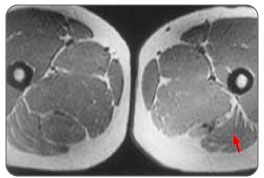 MRIs (magnetic resonance imaging) will provide more detailed information and will help to evaluate the soft tissues in and around your deltoid (muscles, tendons, ligaments, fascia, and other connective tissues). They can identify ligament or tendon damage, and can help to determine the extent of your injury, the grade of your tear or inflammation, as well as other associated conditions. Strained Deltoid TreatmentsDeltoid injuries are frustrating to live with and healing can take a long time because it's difficult to give your arm the rest it needs. This is especially true for certain types of work (ie. mechanic) and athletes that return to their sport too early. Re-injury is common despite that fact that it prolongs recovery and may also lead to permanent damage and/or other conditions. Treating your deltoid strain correctly is essential to getting rid of your pain and restoring function to your upper arm and shoulder. Proper treatment will get you back to regular activities sooner, stop your pain, and reduce the risk of future re-injury. To restore strength and range of motion in your deltoid, treatment should focus on minimizing further damage and preventing both scar tissue formation and muscle atrophy (shrinkage and weakening of the muscle). This requires rest and the appropriate therapies at the right time. Almost all types of deltoid pulls and tears (except a complete rupture) can be properly treated with trusted therapies that are available for use at home. Complete ruptures require surgery - however, using these home therapies after surgery can help speed recovery, improve function, and increase range of motion in your shoulder and arm. Deltoid Strain Home Treatment General GuidelinesThe good news is that most cases of deltoid muscle strains will heal with simple home conservative treatments and surgery is often not needed! When There is Swelling, Use a Cold Compress or Ice Pack on the Injury:
An injury that often leads to straining in other areas (as is the case with a deltoid muscle strain) will make an overall recovery hard to initiate. People tend to "chase the pain", meaning they only focus on treating an area that is actively painful, while not taking into account the fact that other areas of the body will be overcompensating...eventually leading to issues in those areas as well. With injuries such as these, the importance of recovering quickly is often underestimated. We know that heat increases blood flow in soft tissue in the treatment area. This means ligaments, muscles, and tendons. Increased blood flow, combined with heat results in relaxation of the vessel walls. The vessels then gently expand, allowing for more nutrient rich blood flow along with extra oxygen to reach the damaged tissues. Plus, the enhanced blood flow helps in flushing waste and fluid build-up from the injury site - further enhancing the ability of the body to heal. Now that the importance of localized enhanced blood flow has been established, we should talk about the TShellz Wrap®. The TShellz Wrap® - Healthy Muscles For The Long TermThe best option we came across in our research to accomplish effective blood flow to soft tissue in the treatment area at home is the TShellz Wrap®. Use of this device results in an increase of blood flow within the treatment area - all in a non-invasive manner. With a TShellz Wrap® application, more blood begins to flow effectively to soft tissue within the body - for the length of the treatment and a short duration thereafter. Deep tissue needs the extra blood flow to heal as it is through the blood the body carries the oxygen and nutrients needed for proper and long-term healing. Have you seen what happens when you add water to a flower wilted from drought? In essence, your injured deltoid is much like a "wilted" flower; your body wants to heal its injury, but needs lots of nutrients to do it. Blood brings life to your tissue by delivering healing nutrients and oxygen that are vital for their growth and survival. In addition, the blood carries away toxins and waste cleaning the area and healing it faster. Without a good supply of blood, your shoulder simply won't heal properly. Using a TShellz Wrap® will not expose you to the risk of causing further harm to soft tissue like you can when using rigorous exercise. The Shoulder TShellz Wrap® accomplishes the goal of enhanced blood flow without the need for intensive exercise and as such reduces your risk of re-injury. Who Should Use the Shoulder TShellz Wrap®We recommend the use of a Shoulder TShellz Wrap®:
When To Use a TShellz Wrap®
When Should I Use My TShellz Wrap During the Day?The most common question we receive from individuals prior to purchasing is - how many times a day should I be using my TShellz Wraps and when should I be using them? While treatment plans will differ for each individual and their specific injury, there are general guidelines that should be adhered to.
The TShellz Wrap® would then be used:
Conservative Treatment Tools Our Clients Have Used to Help |

